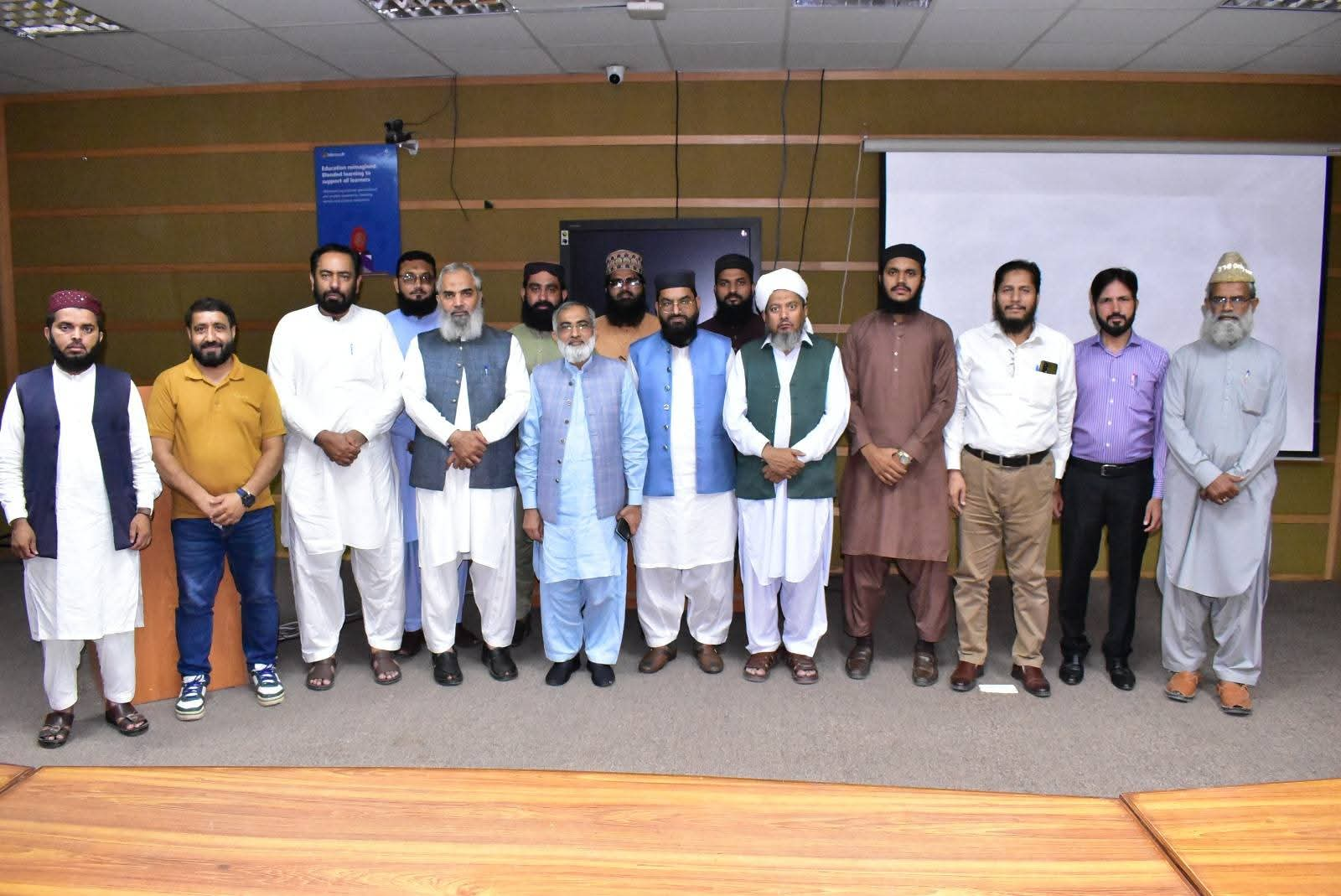Under the auspices of the Department of Arabic at Government College University Faisalabad, a two-day workshop titled “Teacher Training for Teaching the Understanding of the Holy Qur’an” was organized.

The workshop was presided over by Prof. Dr. Humayun Abbas, Dean of the Faculty of Islamic and Oriental Learning, while the distinguished guests included Prof. Dr. Abdul Majid Nadeem, Dr. Mumtaz Ahmad Sadeedi, Dr. Fayaz-ul-Hasan Azhari, and Dr. Asif Raza, who presented their scholarly and research papers.
A large number of university faculty members, professors from affiliated colleges, as well as PhD and MPhil students participated in the workshop.
Addressing the inaugural session on the first day of the workshop, Dr. Humayun Abbas welcomed the guests, faculty, and students, and urged the participants to understand the meanings of the Holy Qur’an and to implement its teachings in their lives.
Prof. Dr. Abdul Majid Nadeem, in his address, stated that the translation of the Holy Qur’an is generally referred to as “Tarjamat al-Qur’an”, but in reality, it is “Tarjamat Ma‘ani al-Qur’an” (translation of the meanings of the Qur’an), as every translator conveys the meaning according to his own understanding and comprehension. He further emphasized that in order to understand the meanings of the Qur’an, a deep recognition of nouns, verbs, and particles is essential.
Dr. Mumtaz Sadeedi explained that no translator or commentator claims that his work is final or absolute; rather, there is always room for new interpretations and translations in every era.
Dr. Asif Raza gave a brief introduction to the HEC-approved course “Muallim al-Qur’an” and highlighted its significance.
At the conclusion of the workshop, Dr. Humayun Abbas thanked the participants and responded to the questions raised by the audience. He stressed that teachers and students must play their role in promoting the understanding of the Qur’an so that the true teachings of the Holy Qur’an can be disseminated throughout society.
This workshop proved to be an important milestone in scholarly, intellectual, and religious terms, providing teachers and students with valuable guidance in understanding the meanings of the Holy Qur’an and the modern requirements of its teaching.









